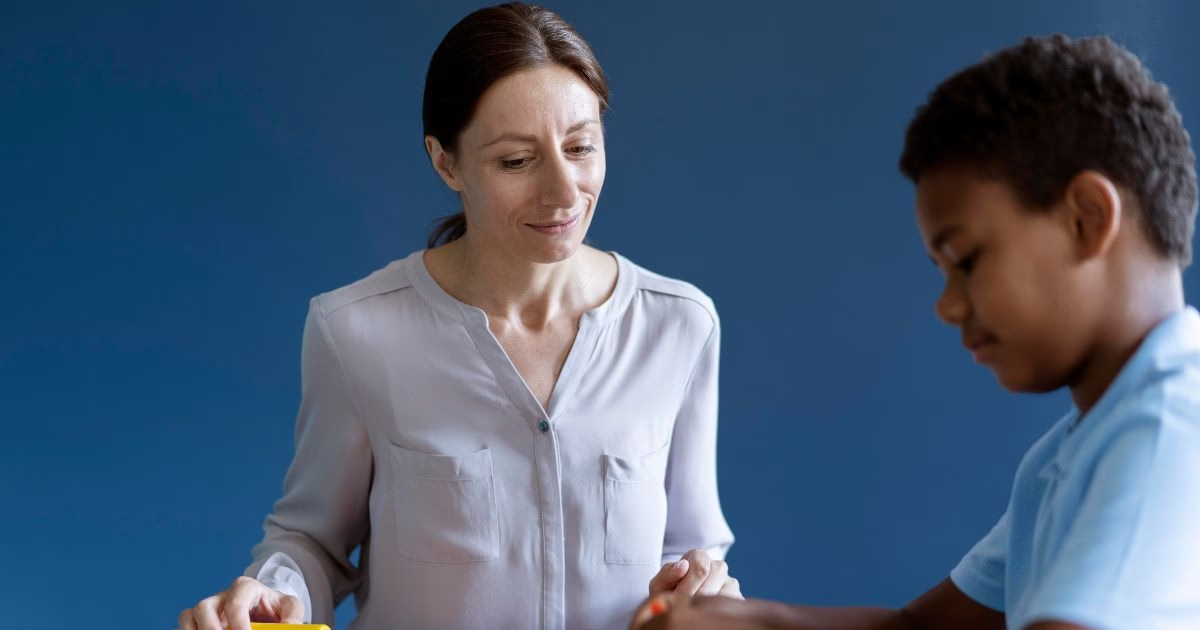How Do Mental and Emotional Illnesses Affect Social Health?
Before diving into how mental and emotional illnesses affect social health, it’s important to understand what each term means. Without this foundation, it’s hard to grasp how deeply connected these elements really are.
What Is Mental Illness?
Mental illness refers to diagnosed disorders that impact a person’s mood, thinking, and behavior. These include conditions like depression, anxiety, PTSD, and bipolar disorder. Each condition affects how a person interacts with others and navigates social situations.
What Is Emotional Illness?
Emotional illness refers to difficulties in managing emotions, often overlapping with mental illness but not always clinically diagnosable. Emotional outbursts, unstable moods, or emotional numbness can interfere with relationships and social interactions.
Defining Social Health
Social health is your ability to form satisfying interpersonal relationships and adapt comfortably to different social situations. It’s not just about having friends—it’s about the quality of your interactions and feeling connected to your community.
The Interconnection Between Mind and Social Life
Mental and emotional health are not just private matters—they affect how you show up in your social world. Here’s how they intertwine.

How Mental Health Shapes Social Behavior
Mental health issues can cause you to pull away from others or behave in ways that are hard for others to understand. You might snap at loved ones or stop reaching out entirely. Your behavior may change so subtly that others don’t realize you’re struggling.
Emotional Struggles and Relationship Strains
Unstable emotions can make relationships feel like a rollercoaster. You may overreact to minor issues or shut down emotionally. Either way, this puts stress on both parties, weakening bonds and trust.
Social Withdrawal and Isolation
When dealing with mental or emotional illness, withdrawing from others can feel like the safest option—but it often makes things worse.
Anxiety and Avoidance Patterns
Social anxiety creates a fear of embarrassment or rejection, leading you to avoid social situations entirely. Skipping events and ignoring messages become second nature, reinforcing isolation.
Depression and Social Disconnection
Depression can suck the energy out of your desire to connect. The idea of conversation feels exhausting, so you begin ghosting friends—even though you crave support deep down.
The Loneliness Loop
Here’s the trap: the more isolated you feel, the worse your symptoms become. But the worse your symptoms, the more you isolate. It’s a self-feeding loop that’s hard to break.
Impact on Communication and Interaction
Mental and emotional disorders often make even simple conversations difficult, which strains social health.
Misinterpreting Social Cues
You might read a neutral tone as anger or think someone’s just being polite when they actually enjoy your company. These misreads lead to insecurity and awkwardness.
Emotional Dysregulation and Conflict
Without emotional control, little things can feel overwhelming. A missed call turns into a meltdown. A disagreement feels like betrayal. That unpredictability pushes people away.
Challenges in Expressing Thoughts Clearly
Mental fog, racing thoughts, or emotional overload can make it hard to express yourself. You may ramble, shut down, or say things you regret—further damaging social connections.
Trust and Vulnerability Issues
Trust is the glue of social health, but mental and emotional illnesses often weaken it.

Trauma and Difficulty Trusting Others
If past trauma is unhealed, opening up again feels unsafe. You might assume the worst of people or test their loyalty in damaging ways.
Fear of Rejection and Judgement
People with emotional or mental illness often fear being “too much” or “not enough.” So, they hide parts of themselves, avoid vulnerability, and miss out on meaningful relationships.
Effects on Family and Friendships
Mental and emotional health don’t just affect the individual—they ripple out into the lives of family and friends.
Strained Relationships with Loved Ones
Mood swings, withdrawal, or breakdowns can confuse or overwhelm loved ones. Without communication or understanding, resentment builds on both sides.
Emotional Dependency or Detachment
Some rely heavily on one person for emotional regulation, which creates unhealthy dependency. Others detach completely, fearing they’ll become a burden. Both extremes damage connection.
Workplace and Academic Social Impacts
Mental and emotional illnesses don’t clock out at 9 a.m.—they come with you to school and work.

Team Collaboration Difficulties
If you’re anxious or emotionally overwhelmed, group work feels like a battlefield. You might freeze in meetings, avoid responsibility, or get defensive during feedback.
Misunderstandings and Marginalization
Symptoms like irritability or inattentiveness may be misread as laziness or incompetence. This misunderstanding can lead to social exclusion or even professional repercussions.
The Stigma That Fuels Social Suffering
Mental illness is hard enough. Stigma makes it worse—often destroying the social lifeline people desperately need.
Stereotypes and Misconceptions
People still say things like “just snap out of it” or think those with mental illness are dangerous or weak. These harmful beliefs prevent compassion and deepen loneliness.
Internalized Shame and Self-Isolation
When you start believing the stigma, it eats at your self-worth. You withdraw to avoid judgment, but the silence becomes a prison.
Read More: Does Paying Health Insurance Reduce Child Support?
Co-Occurring Social Issues
Mental illness often coexists with other social issues, making recovery more complex.
Substance Abuse and Social Health
Many use alcohol or drugs to cope with pain. While it numbs the feelings temporarily, it usually worsens isolation, damages trust, and creates new social challenges.
Homelessness and Community Disengagement
Untreated mental illness can lead to job loss, eviction, and eventually homelessness. Without community support, people are pushed to the edges of society, forgotten and voiceless.
The Role of Early Intervention
Early support can prevent mental illness from unraveling someone’s social life.

Benefits of Early Diagnosis
The earlier you understand what’s happening, the sooner you can start working on solutions. This keeps your relationships, confidence, and routine intact.
Therapy’s Role in Rebuilding Social Skills
Therapists can help you unlearn toxic patterns and develop healthier social habits—from conflict resolution to empathy and assertiveness.
Social Recovery and Reconnection
Healing your social life takes time—but it’s absolutely possible.
Support Groups and Peer Communities
Whether it’s in person or online, support groups let you share your story, hear others, and feel less alone. Connection starts with “Me too.”
Building Confidence through Small Wins
Social confidence doesn’t come all at once. Start with a text, a coffee chat, or a compliment to a coworker. Small wins create momentum.
Developing Coping Skills for Better Social Health
You don’t need to be “fixed” to connect—you just need tools to help navigate social situations more smoothly.
Mindfulness and Emotional Awareness
Mindfulness helps you pause and respond rather than react. When you’re aware of your feelings, you can better manage them in conversations and conflicts.
Communication Techniques and Boundary Setting
Learning how to express needs clearly, listen actively, and set boundaries respectfully transforms your relationships for the better.
Community and Cultural Influences
Your background plays a huge role in how you experience and respond to mental illness socially.
Cultural Perceptions of Mental Illness
In some cultures, talking about mental health is taboo. This adds shame and discourages seeking help, worsening isolation and misunderstanding.
Social Health Support Across Cultures
The flip side? Many cultures also offer strong community support—from spiritual groups to extended families—that can aid social recovery.
The Role of Technology in Social Health
Love it or hate it, tech shapes how we connect.

Digital Connection vs. Isolation
While apps and social media can help you stay in touch, they also increase the risk of comparing yourself to others and feeling inadequate.
Online Communities as Support Systems
On the bright side, online forums, chat groups, and mental health apps can provide safe, 24/7 spaces to vent, learn, and connect with others who understand.
Conclusion
Mental and emotional illnesses are deeply personal—but their impact is profoundly social. They affect the way you speak, relate, trust, and connect. But social health isn’t out of reach. With self-awareness, support, and small steps forward, you can rebuild meaningful connections. Everyone deserves to feel seen, heard, and valued—including you.
FAQs
Can mental illness permanently damage social health?
No. While the effects can last if untreated, many people fully rebuild social skills and relationships with the right support.
How can I support someone with mental illness socially?
Be patient, don’t judge, and invite them gently. Sometimes just “being there” speaks louder than words.
Are social skills trainable in adulthood?
Yes, 100%. Social skills are just that—skills. You can improve them with practice, feedback, and guidance.
How do I know if my emotional struggles are affecting my relationships?
Look for patterns like repeated conflicts, ghosting, or people pulling away. Honest feedback from others is also a clue.
What’s the first step in improving social health?
Start by talking to someone—a friend, therapist, or support group. Connection starts with a single brave step.

